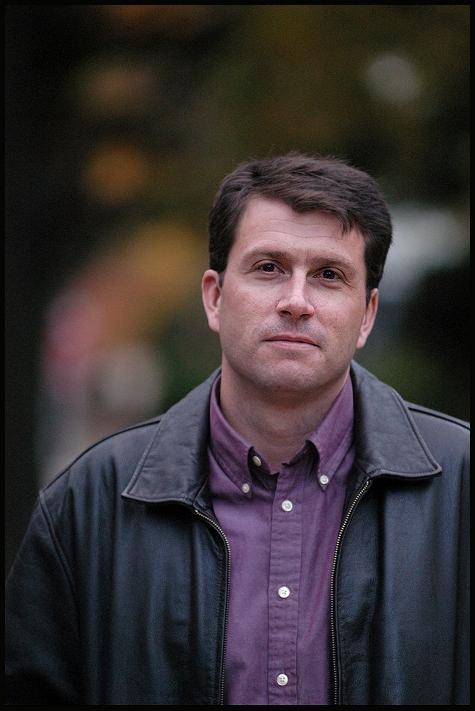
Dr. Greg Downs, Assistant Professor of History, The City College of New York
Post-Civil War Pleas for Relief Sound More Like ‘Subjects of the Crown’ than Self-Reliant Citizens, Says New Book by Dr. Greg Downs
Americans like to envision themselves as self-reliant. We cherish our freedom, and calls to limit government’s role in our lives resonate with a large segment of the electorate. However, perceptions and reality often divulge; many people’s perceptions of – and relationships with – their leaders reflect how well government is doing by them. Recognizing this can shed insight into their political behavior.
A new book by City College of New York historian Dr. Greg Downs explores this phenomenon in the post-Civil War South. “Declarations of Dependence: The Long Reconstruction of Popular Politics in the South, 1861 – 1908,” delves into the often eloquent and intimate pleas from North Carolinians of all races and genders to their elected representatives in Washington. The book will be released this month by University of North Carolina Press.
“We tend to think of people as individualists, but at times they wrote more like subjects of the crown,” says Dr. Downs, an assistant professor at CCNY, who came upon hundreds of similarly written letters while he was researching the Tar Heel State’s political history. “It was surprising to see how many there were and how intensely they begged.”
In the aftermath of the Civil War, the people of North Carolina and the other southern states were thrust into great financial and social need, and many thought government might be able to help them. “Their approach was idiosyncratic: they thought individuals would be helped not entire groups,” Professor Downs says.
“The pleas were very personalized. People asked for concrete needs like food, money or firewood.” Many of the pleas were intimate with people pledging unwavering devotion and loyalty in exchange for help, he notes.
Demand for relief was greater than late 19th century government could meet, and categories of need were established during the Progressive Era as criteria for providing assistance. “The Progressive Era set up government to say “no,”” Professor Downs explains. “Having criteria enabled government to tell large numbers of people they couldn’t have help.”
This changed somewhat during the New Deal Era, when the federal government provided massive assistance to help pull the country out of the Great Depression. However, while people were enamored with President Franklin D. Roosevelt, they thought less of the maze of agencies he established to carry out New Deal programs.
“People fear they will lose when a program is run by a bureaucrat,” Professor Downs maintains. “On the other hand, many people during the New Deal Era viewed Roosevelt as ‘the last good king.’ They also had an emotional connection with him partly because his fireside chats conveyed the sense that he was accessible.”
Beginning with John F. Kennedy, however, most presidents, Barack Obama and George W. Bush among them, have conveyed, instead, a sense of coolness in part to come across well on television. “Obama’s response has been an emphasis on policy through a liberalism borne on impossible hopes from government, but he has left out the emotional side,” he continues.
On the other hand, Sarah Palin, the former Alaska governor popular among many conservatives, “has the effect of a 19th century politician,” Professor Downs says. “She’s mean, nasty and insulting, but she conveys a message that if you’re mine I’ll fight for you.” Many of her fans post very personal messages on her Facebook page that are similar in tone to the 19th century letters from North Carolina, he notes.
Ms. Palin is closely identified with the Tea Party movement, which helped the Republican Party recapture the U.S. House of Representatives in the November 2010 election with its anti-big government rhetoric. However, Professor Downs contends that Tea Party language does not necessarily reflect its members’ actual views.
Many Tea Party leaders receive government payments in the form of farm subsidies, disability payments and social security, he says. “There is nothing more common than people who have access to government not wanting others to have it. If you presume there is a limited pool of resources and you are getting a lot from government, then if others want more you think it will come out of your pocket.”
This is nothing new, Professor Downs continues. In the 1830s, Alexis de Tocqueville pointed out that Americans fought less over the size of government and more over what it was doing for them. Except for the 30-year period after World War II, this has been the norm in American politics, he adds.
“We have returned to normalcy. The (political) parties are more organized and ideologically different because the stakes are higher. People are not used to this, but this is the intense personal nature of politics in a democracy. The politics will be more personal and vicious because that’s the way the parties are.”
MEDIA CONTACT
Ellis Simon
p: 212.650.6460
e:
esimon@ccny.cuny.edu